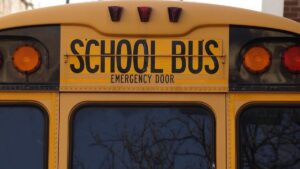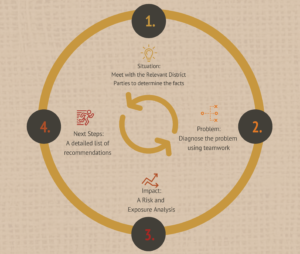
Your source for local & national Educational News!
This month's newsletter features information on breezing through TEA’s New Virtual or Hybrid School Application for the 2022 - 2023 School Year, as well as information on getting your district through a Special Education Due Process Hearing.
Steps Your District Can Put Into Action to Address Summer Learning Loss
Co-Authored By: Paige Bostic, Former Teacher,
Current Attorney
Co-Authored By: Ms. Patience Edwards, M. Ed.,
Founder/CEO BrainBuzzed Tutoring

As year two of the pandemic has come and gone, and students are now out for the summer, the question still lingers, how do school districts address the compounded learning loss of the pandemic and the summer? Learning loss, as defined by the Glossary of Education Reform, “refers to any specific or general loss of knowledge and skills or to reversals in academic progress, most commonly due to extended gaps or discontinuities in a student’s education.”
Although summer is the time for families to relax and unplug for the school year, it is also the longest break for students in which they do not receive academic instruction. Ever heard of the phrase, “If you don’t use it, you’ll lose it?” Well, this is often the case in the summer with students. This notion is referred to as ‘summer slide’ which attributes to learning loss that many schools and districts deal with in the fall. Often, students forget a lot of what they have learned from the previous school year by the end of the summer, while some even regress from where they ended the school year. This loss can also occur in a variety of ways, such as extended breaks, interrupted formal education, ineffective teaching, excessive absences, and the list trails on.
Now while it sounds like a major problem and that there is no perfect solution to address learning loss during the summer slide, the good news is that, below, we have researched
and gathered some tried-and-true best practices for combating learning loss.
#1 – Collect Reflective Data: Survey Parents, Staff, and Students
We must all start somewhere, and public opinion is where the rubber meets the road so to speak. Garnering the opinion of parents, staff, and students will give the Central Administration team a factual basis for the concerns that directly affect their school district. The District can convert these surveys into quantifiable data and integrate this new data with existing school test scores, and other established methods of measurement.
TIP: Send the surveys out via email/ cell phone/ and paper. Allow for those surveyed to remain completely anonymous to allow for unfettered opinions. Ensure confidentiality by keeping all opinions private and for District use only.
#2 Prioritize Your Concerns
Now that the Data is compiled, the District has to prioritize its goals. It is best to create two separate priority lists. The first list will show the District’s long-term concerns. The second list will reflect the District’s short-term concerns. Once these concerns are established, the District should create two planning teams to draft a plan of action.
TIP: The committees should be reflective of the parties affected. Simply put, the planning
committee should involve at least two teachers, one (age-appropriate) student leader, and
one parent leader, along with central administrators.
#3 Community Involvement
Get the community to ‘back your play.’ In other words, get the community involved. Once the action plans are solidified, host community town halls to explain the vision. Enlist the help of community leaders to help inform their specific populations about the changes. All plans will come with resistance, regardless of its helpfulness and practicality. But involving the community in the beginning and the end process will ensure more fans than enemies.
TIP: Ask community leaders to be involved in your informational town halls. Their influence and cooperation can and will make implementation a smoother process.
#4 Implementation
The fun part. Implementation should come in phases. Create a public calendar to inform the community of when each phase of your short- and long-term goals will come into effect. Implementation sounds like the final forefront, but it is not. The implementation stage should include quarterly updates.
TIP: All calendars should state that the dates are subject to change.
STRUCTURAL SUPPORTS IN THE INTERIM
Additionally, Districts may support their student populations in the interim using summer enrichment and parental involvement.
# 1-Provide Summer Enrichment and Academic Support for Students
A preventative way to address your students suffering from summer slide is to offer either a summer enrichment or summer learning program that addresses the focus of your District. By doing this, not only will students be engaged in learning throughout the summer, but students can also learn new information or review skills, that can have them better prepared to start the new school year!
BRAINBUZZED TIP: Provide students with some sort of Student Activity Book, organized activities, or even writing journal to capture their summer memories and provide parents/guardians with simple strategies to support students.
# 2-Parental Involvement/Homeschool Connection
Including parents and guardians within students’ learning has been proven as a success strategy for student success. When students can go home and share what they have or are learning with someone else, it helps them to retain information as well as make real-world connections. Also including simple and easy strategies for parents or guardians, that are not intimidating, to support the learning enhances the goal of getting parents and guardians
involved. In doing this not only do we empower our parents to help their children, but also to become an advocate for their learning.
BRAINBUZZED TIP: Provide students with some sort of Student Activity Book, organized activities, or even writing journal to capture their summer memories and provide parents/guardians with simple strategies to support students.
We hope you enjoyed this departure from our usual legal analysis. We will return to the
legal updates in the fall. Enjoy the summer! For more information on learning loss contact our academic partner BrainBuzzed Tutoring at Info@BrainBuzzedTutoring.com or schedule an appointment on our website: www.BrainBuzzedTutoring.com. To discuss your legal needs and prepare for professional development and school reopening, please contact: Eugene & Associates at 512.662.7415 or email at pbostic@deugenelaw.com.
Eugene & Associates Monthly Spotlight

Eugene & Associates, PC has begun its presentation series on HR Hot Topics, starting with “Having Effective Critical Conversations in the Work Place”. Secure your spot today by emailing charvey@deugenelaw.com

WHY CHOOSE US?
Eugene & Associates, PC, is a boutique law firm specializing in education law and regulation, public finance, renewable energy and nonprofits. At Eugene & Associates, PC, we strive to bring added value to our client partners through sound legal advice, responsive business practices and a personal touch to achieve successful business outcomes.




